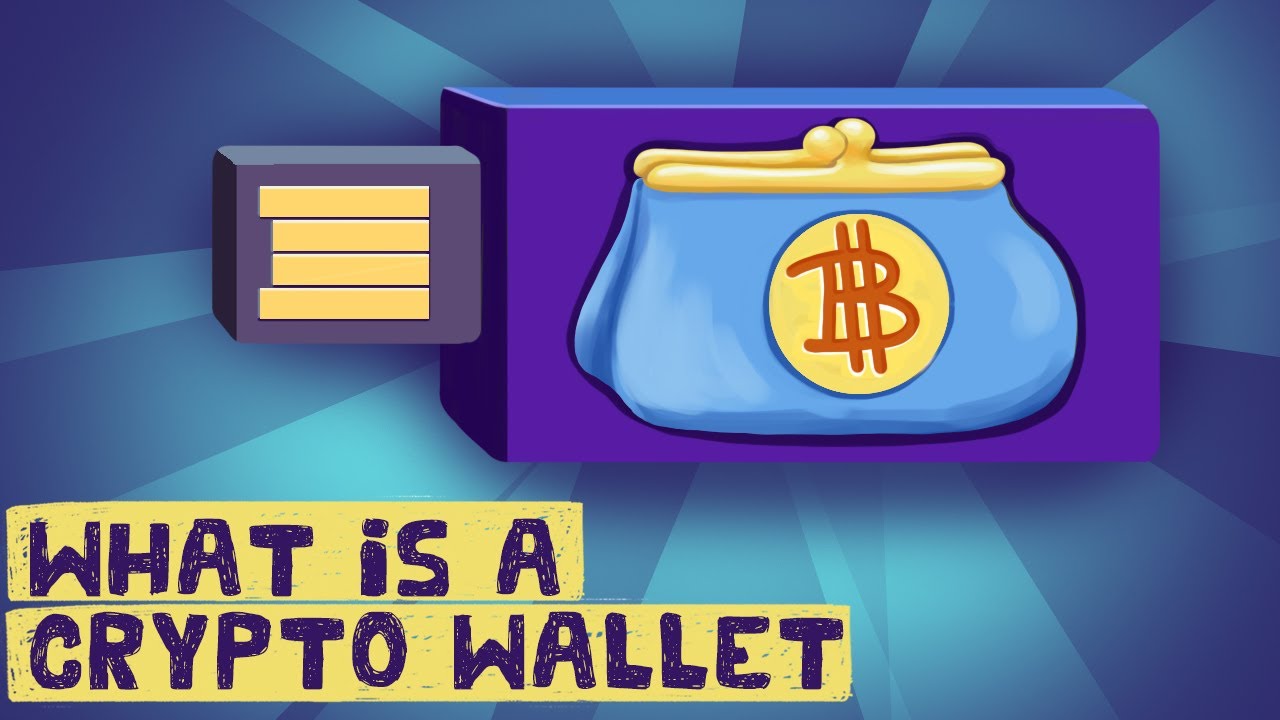What is a Crypto Wallet? : As cryptocurrencies gain traction globally, understanding the function and importance of a crypto wallet is crucial for anyone looking to store, manage, or trade digital assets securely. Crypto wallets serve as the gateway to managing digital currencies like Bitcoin, Ethereum, and other blockchain-based assets, ensuring both accessibility and security.
Below, we delve into the essential details of crypto wallets, types available, how they work, and best practices for choosing and safeguarding your crypto wallet.
What is a Crypto Wallet?
A crypto wallet is a digital tool that stores public and private keys, enabling users to send, receive, and track their cryptocurrencies. Contrary to popular belief, crypto wallets do not store the cryptocurrency itself; instead, they store cryptographic keys—unique codes that grant access to a user’s digital assets on the blockchain.
These wallets ensure that only the rightful owner has access to the funds and can authorize transactions, making security paramount.

How Does a Crypto Wallet Work?
Crypto wallets function by interacting with blockchains—public ledgers that record every transaction. Wallets consist of two primary keys: the public key and the private key. Here’s how each operates:
- Public Key: This is like an address that others use to send cryptocurrencies to the wallet. It’s safe to share publicly, similar to an email address.
- Private Key: This is a secret code that gives the owner control over the funds in their wallet. It must remain private to prevent unauthorized access.
When a user initiates a transaction, the wallet uses the private key to sign and authorize it, then sends the transaction to the blockchain for validation. This ensures a secure and transparent transfer of assets.
Types of Crypto Wallets
Crypto wallets come in various forms, each with unique security features, levels of accessibility, and functions. Below, we discuss the main categories:
Hot Wallets
Hot wallets are connected to the internet, making them convenient for frequent transactions but more vulnerable to hacking. These wallets are ideal for users who trade regularly or need instant access to their assets.
- Desktop Wallets: Installed on a computer, these wallets offer control over the funds and security features like encryption. However, they are vulnerable to malware if the computer is compromised.
- Mobile Wallets: Designed for smartphones, mobile wallets are ideal for on-the-go transactions. They come with additional security features like fingerprint and face recognition, though they still pose a higher security risk if the device is lost.
- Web Wallets: Accessible via browsers, these wallets are hosted on cloud servers. They are convenient for beginners but often lack control over the private keys, which are held by a third-party service.

Cold Wallets
Cold wallets are offline wallets, providing a higher level of security by keeping assets disconnected from the internet. They are ideal for long-term holders and those prioritizing security.
- Hardware Wallets: Hardware wallets, like the Ledger and Trezor, store private keys on physical devices that connect to a computer only when needed. They provide robust security against online attacks.
- Paper Wallets: A paper wallet stores private and public keys on a physical sheet of paper, making it immune to digital hacks. However, it can be easily lost, damaged, or stolen if not stored securely.
Security Features to Look for in a Crypto Wallet
The security of a crypto wallet is critical for protecting assets from unauthorized access. Here are key features to consider:
- Two-Factor Authentication (2FA): Adding an extra layer of security, 2FA requires users to provide two types of verification before accessing the wallet.
- Multi-Signature (Multisig): A multi-signature wallet requires multiple signatures to authorize a transaction, enhancing security by requiring approvals from multiple parties.
- Backups and Recovery Phrases: Wallets should offer a recovery phrase—a series of words that can restore access if the wallet is lost or stolen.
- Encryption: Data encryption is essential, particularly for desktop and mobile wallets, to prevent unauthorized access in the event of a device compromise.
Popular Crypto Wallets for Different Needs
The right wallet depends on your needs, whether you’re a beginner, an investor, or a trader. Here are some popular wallets to consider:
- MetaMask: A browser-based wallet ideal for beginners and those working with Ethereum-based assets.
- Trust Wallet: A mobile wallet offering support for a variety of cryptocurrencies and direct integration with decentralized exchanges.
- Ledger Nano S and X: These hardware wallets offer robust security features and support multiple cryptocurrencies.
- Exodus: A desktop and mobile wallet known for its user-friendly interface, ideal for beginners who prioritize convenience.

Setting Up a Crypto Wallet
Setting up a crypto wallet is a straightforward process, though steps vary depending on the type. Here’s a general guide:
- Choose Your Wallet Type: Decide between a hot or cold wallet based on your security needs and frequency of transactions.
- Download or Purchase the Wallet: Download a reputable wallet app (e.g., Trust Wallet) or purchase a hardware wallet (e.g., Ledger).
- Create an Account and Secure with a Strong Password: Use a complex password and, if possible, enable two-factor authentication.
- Back Up the Recovery Phrase: Write down the recovery phrase and store it in a secure place—this is crucial for wallet recovery.
- Transfer Funds: Use the public key to transfer assets into the wallet.
Best Practices for Keeping Your Crypto Wallet Secure
Maintaining security is essential in safeguarding digital assets. Here are best practices for securing your crypto wallet:
- Store Private Keys Offline: For cold wallets, always keep private keys offline and away from potentially compromised devices.
- Use Hardware Wallets for Long-Term Storage: Hardware wallets offer enhanced security for assets you don’t need immediate access to.
- Enable 2FA and Biometrics: For hot wallets, enable two-factor authentication and biometrics for added layers of security.
- Regularly Update Software: Update your wallet’s software regularly to protect against new security vulnerabilities.
- Avoid Public Wi-Fi for Transactions: Use a secure internet connection when accessing your wallet to prevent interception of sensitive information.
Pros and Cons of Crypto Wallets
Understanding the advantages and disadvantages of crypto wallets can help users make an informed choice. Here are some pros and cons to consider:
Pros
- Ownership and Control: With non-custodial wallets, users have full control over their funds and private keys.
- Privacy and Anonymity: Crypto wallets maintain privacy since transactions don’t require personal information.
- Convenience for Global Transactions: Crypto wallets enable instant, borderless transactions at any time.
Cons
- Security Risks: Hot wallets are more susceptible to hacks, while cold wallets require careful handling to avoid loss.
- Responsibility for Security: Users are solely responsible for their wallet’s security, with no options for recourse if keys are lost or stolen.
- Learning Curve for Beginners: New users may find wallet setup and security precautions complex.
How to Choose the Best Crypto Wallet for You
Selecting the best crypto wallet depends on individual needs. Here are factors to consider:
- Frequency of Use: If you trade often, a hot wallet offers convenience. Long-term holders should consider cold wallets.
- Level of Security Needed: Cold wallets are preferable for those prioritizing security, while hot wallets are accessible and user-friendly.
- Asset Compatibility: Ensure the wallet supports the specific cryptocurrencies you plan to store or trade.
- Backup and Recovery Options: Opt for wallets with recovery options and user-friendly interfaces, especially for beginners.
Conclusion
Crypto wallets play a pivotal role in securely managing and transacting digital assets. By understanding the types of wallets, how they work, and essential security features, users can make informed choices about safeguarding their investments. Whether you’re a beginner or an experienced crypto enthusiast, selecting the right wallet and adhering to security best practices is essential for a secure crypto experience.

2 thoughts on “What is a Crypto Wallet? A Comprehensive Guide to Safely Storing Digital Assets”